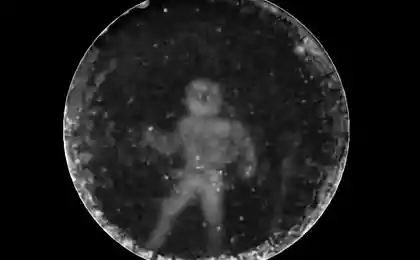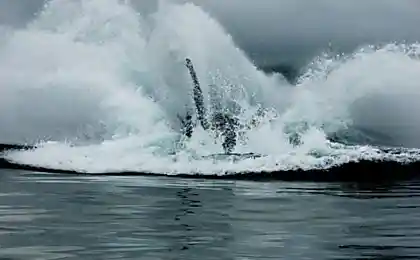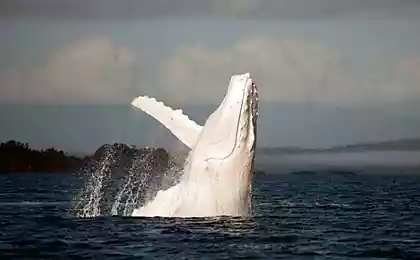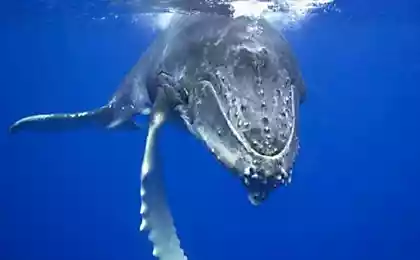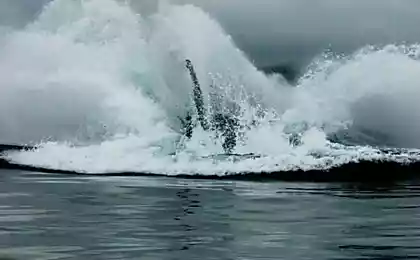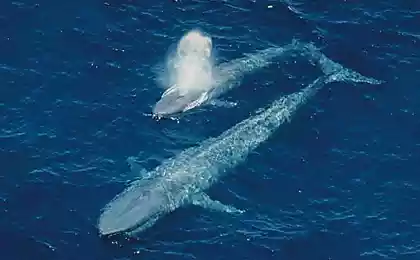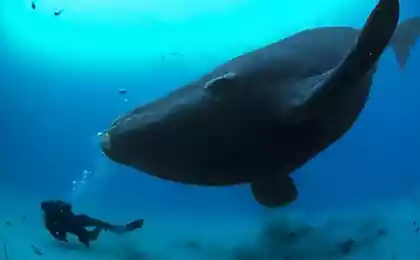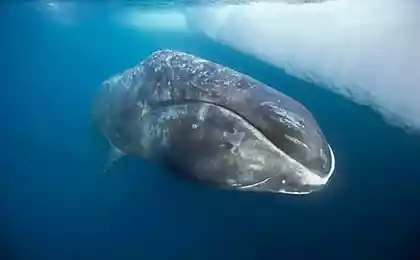440
Orcas learned to speak Dolphin with accent
For many years scientists have known that killer whales "speak" in a dialect that is typical for their social group. They use a series of clicks, whistles and pulses in interaction with each other.
Different clans of killer whales can be significant differences in dialect. The Smithsonian reported that in some cases, the difference may be equal to the difference between the Greek language and the Russian language.
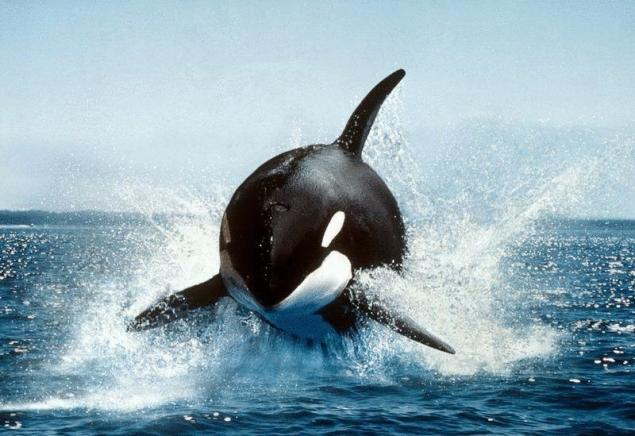
So it wasn't a complete surprise when a graduate student Whitney Musser from the University of San Diego, and senior research scientist Dr. Ann Bowles of the research Institute of Hubbs-SeaWorld have found that killer whales were similar to dolphins in sound. Data were collected from two SeaWorld parks and Six Flags Discovery Kingdom.
"Killer whales are skilled social learners. They learn easily from each other. This is culture, and culture is the basis of life," said Hal Whitehead, a researcher at Dalhousie University. "One isolated killer whale studied the sounds in isolation."
Whales observed by Musser and Bolsom even able to mimic a sequence of sounds that coaches have taught for the dolphins, before they were placed with the whales. This suggests that their brains have a high level of neural plasticity.
Musser and Bowles also found that the killer whales had a small accent. While they were able to reproduce four times as many whistles as a control group of killer whales was at lower levels than their fellow dolphins.
"This is another confirmation that learning is Central to how killer whales acquire a vocal repertoire, and again confirmed the status of cetaceans as one of the few groups of mammals to have evolved true vocal learning," said Dr Luke Rendell, lecturer in biology University of St Andrews.
The study was carried out in conditions which are becoming increasingly controversial as evidence of whale intelligence and social complexity grows: whales and dolphins in captivity. Orcas have been shown to suffer when trapped in small puddles of water and the Dodo recently announced that free whales live longer than 4 times than the same whales in captivity. While studies similar to Musser and Bowles added a valuable understanding of these mysterious creatures, the question remains: should humans experiment on animals in such conditions?
Different clans of killer whales can be significant differences in dialect. The Smithsonian reported that in some cases, the difference may be equal to the difference between the Greek language and the Russian language.

So it wasn't a complete surprise when a graduate student Whitney Musser from the University of San Diego, and senior research scientist Dr. Ann Bowles of the research Institute of Hubbs-SeaWorld have found that killer whales were similar to dolphins in sound. Data were collected from two SeaWorld parks and Six Flags Discovery Kingdom.
"Killer whales are skilled social learners. They learn easily from each other. This is culture, and culture is the basis of life," said Hal Whitehead, a researcher at Dalhousie University. "One isolated killer whale studied the sounds in isolation."
Whales observed by Musser and Bolsom even able to mimic a sequence of sounds that coaches have taught for the dolphins, before they were placed with the whales. This suggests that their brains have a high level of neural plasticity.
Musser and Bowles also found that the killer whales had a small accent. While they were able to reproduce four times as many whistles as a control group of killer whales was at lower levels than their fellow dolphins.
"This is another confirmation that learning is Central to how killer whales acquire a vocal repertoire, and again confirmed the status of cetaceans as one of the few groups of mammals to have evolved true vocal learning," said Dr Luke Rendell, lecturer in biology University of St Andrews.
The study was carried out in conditions which are becoming increasingly controversial as evidence of whale intelligence and social complexity grows: whales and dolphins in captivity. Orcas have been shown to suffer when trapped in small puddles of water and the Dodo recently announced that free whales live longer than 4 times than the same whales in captivity. While studies similar to Musser and Bowles added a valuable understanding of these mysterious creatures, the question remains: should humans experiment on animals in such conditions?
On the ocean floor have discovered thousands of new mountains and valleys
The first buyers have tested hydrogen-powered Mercedes
